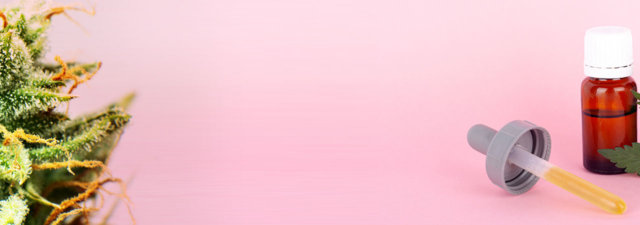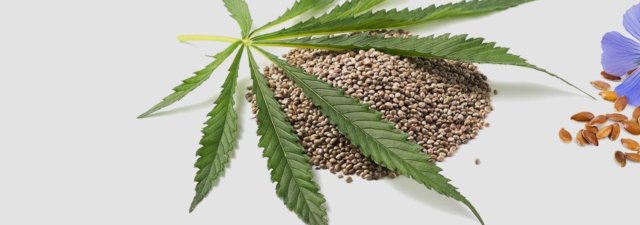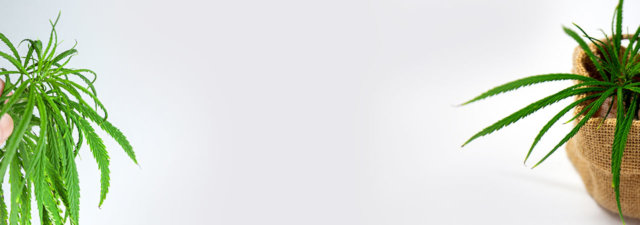According to the American College of Asthma, Allergy, and Immunology, a whopping 50 million Americans suffer from a wide variety of allergies each year. And now, as more and more people are using marijuana for recreational or medicinal purposes, it too has been added to the already lengthy list of allergens which Americans suffer from. This article will look at some of the common symptoms to look out for and what to do if you experience any of them after being exposed to marijuana.
How Can You Know If You are Allergic to Marijuana?
Understand Your Symptoms:
The first step to recognizing if you have a sensitivity, or maybe even are allergic to marijuana, is to understand the symptoms. What happens after you smoke or consume cannabis? Are your symptoms a natural reaction to smoking weed, or do they seem abnormal? Do you have a legitimate reaction to the marijuana plant itself, or could it possibly be a reaction to any mold that could be growing on the buds?
Depending on the method of consumption, marijuana can cause different forms of allergic reactions. Commonly reported allergic reactions to inhaling marijuana include the following symptoms:
- Red eyes
- Watery eyes
- Hay fever
- Runny nose
- Nasal congestion
- Sneezing
- Nausea
- Vomiting
Additionally, some individuals can also have skin reactions when coming into contact with the cannabis or hemp plant. Some of these skin reactions include:
- Hives
- Itchiness
- Inflamed, red skin
- Dry, scaly skin
While these symptoms are unpleasant, these are the milder reported forms of allergic reactions to marijuana. In some rare cases, individuals who are extremely allergic to marijuana have experienced anaphylactic shock. This is a very serious and life-threatening allergic reaction which has the following symptoms:
- Dizziness
- Loss of consciousness
- Labored breathing
- Swelling of the tongue and breathing tubes
- Blueness of the skin
- Low blood pressure
- Heart failure
- Death
If a person experiences a severe allergic reaction to marijuana and goes into anaphylactic shock, they require immediate emergency treatment. The most commonly used treatment for anaphylactic shock is an EpiPen, which administers a shot of epinephrine (adrenaline) to the affected person.
Allergy Cross Reactions
A very good indicator as to whether or not you will be allergic to marijuana is if you have allergies to foods or any other substance which have similar protein properties. This is known as allergen cross-reactivity. It occurs when the proteins in one substance (typically pollen) are similar to the proteins found in another substance (typically a food).
An example of this is if you are allergic to the pollen of a birch tree, you would likely also be allergic to a food with similar protein properties, such as an apple. Some common foods which have similar protein properties to the cannabis plant include:
- Tomatoes
- Peaches
- Grapefruit
- Almonds and chestnuts
- Eggplant
- Apples
- Bananas
Therefore, if you are allergic to any of the foods listed above, you are more likely to be allergic to marijuana, too.
Understand What Causes a Marijuana Allergy:
There are typically three root sources as to why a person might believe they are allergic to marijuana:
- Increased exposure to an allergen like marijuana can lead to sensitization, which is the development of an allergic reaction due to over-exposure to a particular allergen. Sensitization to marijuana pollen is more likely to occur in areas where cannabis is grown due to a large amount of marijuana pollen present in the air. Symptoms of a pollen allergy include post-nasal drip, runny nose, red eyes, congestion in the nasal area, sneezing and itching eyes/nose.
- You might actually be allergic to the mold on the cannabis you’re consuming. This fact might seem rather disturbing, but just as an apple left uneaten for too long can develop mold and bacteria, so can your marijuana. If for some reason the bud hasn’t been dried or cured properly after harvest, there is a possibility that it could contain mold. Additionally, mold can grow on bud left in sealed jars if spores were already present. Many buds that are tested in labs have even just a small presence of mold, and this issue is one that has been deeply affecting the quality of crops from cannabis growers worldwide.
- The least likely possibility is that you could actually be allergic to the components in the cannabis plant This is the least likely of the three options, but nevertheless, some individuals are actually allergic to the elements that are in the marijuana plant. These reactions are typically more serious.
I Think I Might Be Allergic to Marijuana. What Should I Do?
The most important thing to do if you think you might have a marijuana allergy is to stay calm and get evidence before making any assumptions. Your negative reactions to marijuana could be caused by a number of different factors as mentioned above, so it’s best to consult a professional for real answers and not make a self-diagnosis.
Consulting with a doctor or an allergist can provide you with some much-needed answers, even if the conversation of marijuana might be an uncomfortable one to have with a medical professional. Thankfully, doctors have to keep your information confidential by law, and many states are already recognizing medical legality of cannabis, as well as recreational legality. Consuming marijuana is not nearly as taboo as it was even just fifteen years ago, so don’t feel uncomfortable about being honest with your allergy specialist- they are here to help, it’s their job.
Your doctor or allergist will most likely need to conduct a skin test, for this is typically the most accurate way of understanding cannabis allergies and sensitivities. These tests involve skin pricking and are typically a non-invasive method of testing, which produces quick results. If you are allergic to marijuana, you will experience some redness or itching on the area of skin tested within about 15-20 minutes.
Your doctor may carry out a blood test such as an ImmunoCAP Specific IgE blood test. The ImmunoCAP test is used when a patient has a confirmed allergy and is used to identify the specific allergen which the person is allergic to. Other forms of blood tests used to identify allergens include the enzyme-linked immunosorbent assay (ELISA) which detects and measures the number of antibodies produced in response to a given allergen and the radioallergosorbent (RAST) blood test.
I Really Feel I Have a Sensitivity to Marijuana; What Are My Alternative Options?
There are alternative options for those who are trying to remove smoking cannabis from their lives, either due to smoke being harmful for their asthma, or negative reactions because of pollen and mold.
If you think you are sensitive to pollen, this reaction can often be tough.
Just as millions of Americans deal with seasonal allergies, your reaction to cannabis pollen will have similar solutions. If you are using bud, try only consuming edibles and condensed forms of marijuana which are less likely to have pollen particles. Investing in a good air filter can also help to keep any of the particles out of your house or living space. If all else fails, over the counter antihistamines that are recommended for the treatment of seasonal allergies or eye drops (if you get itchy eyes), can assist in lessening the uncomfortable symptoms you might be experiencing.
If you think you are sensitive to mold, then it is best to switch up the way you consume cannabis.
By consuming cooked or processed marijuana instead of “raw bud” (the type you smoke), you are minimizing your chances of being exposed to the possible remnants of mold that can be inhaled by your lungs when you are smoking ganja. The heat and high temperatures kill all the possible mold particles, making it safe for those sensitive to this factor. Mold on your marijuana might sound disgusting, but studies have shown that a large percentage of weed on the market have some level of mold particles on them. This is actually pretty natural, just as potatoes and carrots are normally covered in dirt when you first pick them. Switch to raw bud alternatives; for example, edibles, concentrates, tinctures and more if you think you might be sensitive to this mold!
If you have gotten testing and your allergist believes you have an allergy to the actual cannabis plant itself…
This is typically when you might need to cut marijuana out of your life. We are so sorry, and this really sucks, but luckily this allergy is quite mild and not too common. If your symptoms aren’t so bad, try switching over to edibles and processed forms of cannabis too, your allergy might actually be a pollen or mold problem in disguise. If you don’t mind doing a little experimenting and you feel personally that it is safe to do so, explore your other weed options and see if any of them make your body react in a different manner.
Empirical Evidence for Marijuana Allergies
In 2014, the French Journal of Allergology published a review carried out by researchers in Belgium which discussed the current knowledge of allergies associated with the Cannabis sativa plant. In the review entitled, Cannabis allergy: more than a staggering journey, Emerging allergens: Cannabis, A.L. Van Gasse and colleagues identified a number of allergic reactions experienced by people after contact with cannabis sativa. Van Gasse and colleagues noted that some of these allergic responses included allergic rhinitis (hay fever), conjunctivitis (more commonly referred to as pink eye), skin rashes, as well as asthmatic symptoms when cannabis sativa was smoked, inhaled or even chewed.
In another review of the literature on the allergic effects produced by cannabis sativa, this one carried out by Ocampo and Rans (2015), the researchers noted a range of allergic reactions which ranged from milder symptoms associated with sensitization to cannabis pollen to more severe allergic reactions such as anaphylaxis.
In another study carried out by D. Wong and colleagues, which was published in the Journal of Allergy and Clinical Immunology in February 2018, the researchers found that the allergic symptoms produced by cannabis depended on the route of exposure. Wong and colleagues’ study involved 11 patients with cannabis allergies. The patients reported various symptoms which were dependent on how they were exposed to cannabis.
Three of the patients reported experiencing abdominal pain and vomiting following ingestion of marijuana. Eight patients reported experiencing rhinitis and ocular symptoms as a result of smoking cannabis. Seven reported developing urticaria and pruritus after touching cannabis. Two patients reported gastrointestinal symptoms and anaphylactic reactions to ingesting hemp seed after 1-2 years of smoking marijuana.
Final Thoughts About Marijuana and Allergies:
If you are experiencing any of the symptoms listed in this article following exposure to cannabis, then it is a good idea to talk to your doctor about having an allergy test done to determine whether or not you are allergic to marijuana. If you have never tried cannabis and are thinking about doing so, and you have other allergies to any of the foods listed above which have similar protein properties, then it is also a good idea to have an allergy test done before trying it.
While some of the allergic reactions are relatively mild, albeit unpleasant, it is clear that some people have a severe and life-threatening allergy to cannabis, which can result in anaphylaxis and even death. It is not something to be dismissive about and is definitely worth having an allergy test done if you have any concerns about it.
![How to Prevent Developing a Cannabis Tolerance [Must-Know Trick]](https://wayofleaf.com/wp-content/uploads/2018/01/wol_reduce-marijuana-tolerance_1920x450-640x225.jpg)
![What Is Melatonin in CBD Oil? [Exploring the Benefits]](https://wayofleaf.com/wp-content/uploads/2020/03/wol-banner-what-is-melatonin-in-cbd-oil-640x225.jpg)








![Should You Smoke Cannabis Every Day? [Pros & Cons]](https://wayofleaf.com/wp-content/uploads/2019/03/wol_1920x450-38-640x225.jpg)

